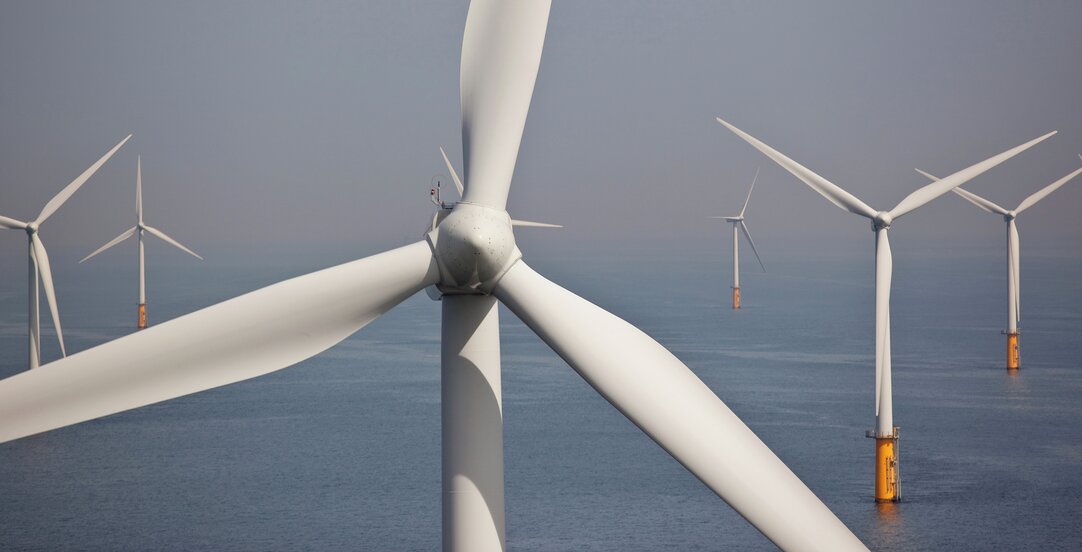Norwegian Government Launches Tender Rules for Offshore Wind

On 6 December 2022 the Norwegian Ministry of Petroleum and Energy (the "Ministry") announced that it intends to open the offshore wind tenders for phase one of the Sørlige Nordsjø II area and for the Utsira Nord area in the first quarter of 2023, and published the proposed criteria and format for the tenders.
Reading time 6 minutes
Key take-aways from the Ministry's proposal are:
- Exclusivity to the phase one area of Sørlige Nordsjø II (1500 MW) will be awarded to one entity or consortium alone.
- Utsira Nord will be divided in three equal areas of 500 MW.
- The offshore wind developers must expect to develop, build, finance and own their radial cable connections to shore (i.e. the cables will not be built or owned by Statnett).
- The Sørlige Nordsjø II auctions are suggested to be carried out by a combination of open bids followed by a sealed bid auction among the two remaining bidders.
- Two-sided Contracts for Difference (CfD) will be used for Sørlige Nordsjø II, both as an allocation tool in the auction process and as the basis for a potential award of public support.
- For Utsira Nord, public support will either take the form of investment aid or CfDs, and will in any case be awarded through competition at a later stage.
- The Ministry presents detailed prequalification requirements for Sørlige Nordsjø II and qualitative criteria for Utsira Nord.
Introduction
Due to the current need for increased power production in Norway the government has previously this year decided that phase one of the Sørlige Nordsjø II, representing 1500 MW out of the total 3000 MW capacity to be awarded in that area, will serve the Norwegian market only. Now, the Ministry clarifies that exclusive rights to apply for a license in the whole area of 1500 MW will be awarded to one entity or consortium alone, in order to promote scale advantages. Allocation in respect of the Sørlige Nordsjø II phase one tender is expected to take place during the summer or autumn of 2023.
Given that the average water depth in Sørlige Nordsjø II is about 60 metres, the area is suited to bottom-fixed offshore wind projects. In Utsira Nord, on the other hand, the average water depth is about 267 metres and in turn the area is more suited to floating offshore wind projects.
In light of the fact that infrastructure and technological developments for bottom-fixed offshore wind projects is much more developed than for floating offshore wind, the Ministry has expressed that it anticipates providing less governmental support to the former.
In respect of Sørlige Nordsjø II, the Ministry is seeking input regarding the prosed pre-qualification criteria, auction format and potential support scheme for phase one of Sørlige Nordskjø II. For Utsira Nord, the Ministry is seeking input regarding the qualitative criteria and support scheme proposed for this area, as well as the timeline for the upcoming process.
The deadline for interested parties to provide input is 6 January 2023.
Sørlige Nordsjø II
The bidding model proposed for Sørlige Nordsjø II is an "Anglo-Dutch auction" whereby the auction commences with open bidding followed by a sealed bid once only two bidders remain. According to the Ministry, the main driver for its auction format selection has been to attain the most efficient distribution of resources with the lowest possible level of government support.
Prior to reaching the auction stage and in order to participate in the auction, prospective bidders will be required to put themselves forward for pre-qualification in accordance with the criteria set by the Ministry.
The Ministry has indicated that there will likely be a cap on the number or proportion of applicants who will be successfully pre-qualified, in order to encourage and incentivise applicants to optimise their respective project proposals.
The timing for prospective bidders to submit their pre-qualification applications has not yet been set, and the Ministry has requested input as to the period of time entrants estimate they will require to prepare such application.
In order to pre-qualify to participate in the Sørlige Nordsjø II phase 1 auction, prospective participants must show that they satisfy the following pre-qualification criteria:
- Fundamental information regarding their proposed project (including an application letter and a copy of a binding shareholders' agreement, partnership agreement or joint venture agreement if the applicant is a consortium);
- Capacity to implement the proposed project (including satisfactory technical competence, financial strength, experience and HSE systems, as well as a clear and realistic project concept and plan) – as concerns experience, the applicants must as a minimum requirement demonstrate experience with developing, building and operating an offshore wind farm of at least 300 MW;
- Sustainability (including a climate footprint analysis, co-existence plan, recycling plan and minimum area efficiency); and,
- Positive local spillover effects (including development of expertise in the offshore wind supplier industry and development opportunities for small and medium sized businesses).
In order to succeed with the pre-qualification process, we assess that the applicants are required to invest severely in their project development and supply chain relations ahead of the tender. This constitutes a major difference from other energy projects in Norway.
The Ministry has concluded that two-sided CfDs would be the most suitable support scheme for phase one of Sørlige Nordsjø II. It proposes a term of 15 years and that the CfD will comprise 1400 out of the possible 1500 MW capacity for the project. There will be a cap on the maximum level of support which can be paid out by the government under the CfD. The Ministry intends to set a "reservation price" before the phase one auction which will act as a maximum contract price, i.e. all bids must be lower than the reservation price. Furthermore, the CfD will contain mechanisms to avoid power production when power prices are very low.
Finally, the Ministry questions what should be the CfD reference price, but states that they favour the reference price being the annual average power price rather than hourly spot prices. The reasoning is that this will incentivise the wind farm owners to follow market signals due to the fact that they retain some market exposure. In our view, many of the consortia will be more familiar with a mechanism where the reference price equals the hourly spot price, while the necessary market exposure is achieved by the CfD being limited to a percentage of the production volume. By using a familiar format, it will likely be easier for the bidders to set an auction price.
Utsira Nord
The bidding process for Utsira Nord will not include a pre-qualification stage. Instead, the Ministry will review all applications against the set qualitative criteria once the tender submission deadline has passed. All applicants are asked to rank the three areas of the Utsira Nord area according to preference.
The Ministry has set out its preferred model for the Utsira Nord tender as well as an alternative model.
In the preferred model the three applicants with the highest overall scores (based on a review against the bidding criteria) will be identified. Each of these three applicants will be awarded an area, with the highest ranking applicant receiving its first preference, the second highest ranking applicant receiving its preference of the remaining two areas and the third highest ranking applicant receiving the final area.
The alternative model involves the overall highest ranking applicants receiving one year to further develop their respective projects before moving into the second phase of the tender in which areas will be allocated, followed by governmental support.
The qualitative criteria proposed for Utsira Nord are quite similar to the pre-qualification criteria published for Sørlige Nordsjø II. In addition to evidencing (i) capacity to implement the proposed project, (ii) sustainability requirements and (iii) positive local spillover effects, applicants are required to provide:
- an estimate of the cost required to develop a 500 MW floating offshore wind project which is operational in 2030; and,
- a plan to promote innovation and technological developments for future floating offshore wind projects capable of (i) reducing costs and (ii) distribution and scale-up.
This additional criteria reflects the fact that the infrastructure and technology for floating offshore wind projects is much less developed than for bottom-fixed projects. Also, compared to the pre-qualification criteria for Sørlige Nordsjø II, the qualitative criteria for Utsira Nord are much more focused on the skills and experience of key personnel within the consortia.
The Ministry has not yet reached a conclusion in respect of its preferred support scheme for Utsira Nord. It is considering an investment support based scheme as well as a two-sided CfD scheme and has requested input from interested parties in relation to these two alternatives.

